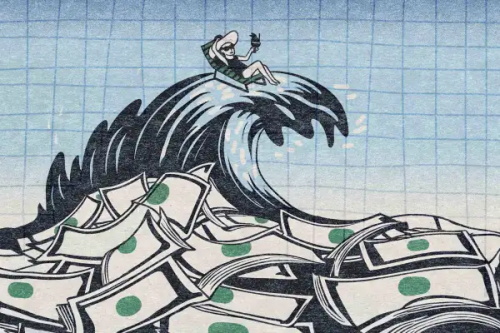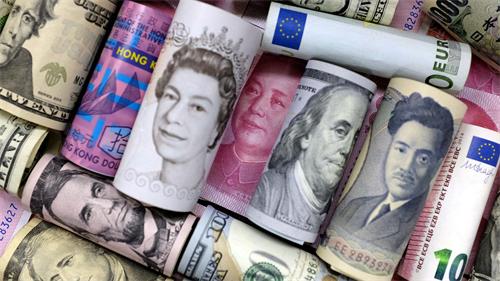Why Saving Money Feels So Hard—Even When You Earn More

Have you ever felt like your paycheck just disappears within days of landing in your account? You pay off your credit card, cover rent, buy groceries, maybe go out to eat or catch up with friends—and suddenly, it’s the end of the month and your bank balance is alarmingly low, or worse, in the red. You thought you were being frugal, so why is saving money still so difficult?
You’re not alone. Struggling to save is a common dilemma in today’s world. But the real issue might not be how much you earn—it could be how you spend, plan, and think about money.
01|More Income Doesn’t Equal More Savings
Many people assume, “If I could just earn a bit more, I’d finally be able to save.” But in reality, higher income often leads to higher spending. You move into a bigger apartment, upgrade your phone, splurge on fine dining, and swap instant coffee for artisan brews. This is known as lifestyle inflation—as your earnings grow, so do your expenses.
The real issue often isn't a lack of income—it's that as your earnings increase, so do your expectations and spending habits. Over time, your expenses start to be driven more by what you want than by what you actually need.
02|You’re Not Bad at Saving—You’re Surrounded by Spending Traps
Modern life is a minefield of subtle spending cues. From the moment you wake up, you're bombarded with notifications, social media ads, limited-time offers, and “buy one get one” deals. Every click or scroll invites you to spend.
But have you ever asked yourself why you feel like you're “missing out” if you don’t buy? That urgency is carefully manufactured by marketers. They play on your fear of loss: “Buy now or regret later.” Over time, this cultivates a habit of impulse spending—buying not out of need, but out of boredom or desire for quick gratification.
Social media doesn’t help. When you constantly see others flaunting luxury bags, exotic vacations, or perfect lifestyle setups, you can’t help but compare. And suddenly, you’re spending just to feel like you’re keeping up—not because it adds real value to your life.
03|Saving Feels Like a Sacrifice—But That’s a Mental Trap
Let’s be honest: saving just isn’t exciting. Compared to the thrill of shopping, putting money into a savings account feels... underwhelming. A purchase delivers an instant dopamine rush. Saving, on the other hand, offers no immediate reward—just a number ticking up slowly.
So it’s easy to tell yourself, “I want to enjoy life now, not live like a monk.” But true freedom isn’t about spending everything you have. It’s about being in control—deciding when and how to spend, without fear or guilt, and without debt chasing you.
04|Planning Is the Most Underrated Financial Tool
In many cases, the issue isn’t income—it’s the lack of a financial framework. Many people grow up without receiving any real guidance on how to handle their finances. Concepts like budgeting, saving, and investing can seem overwhelming or unclear. As a result, money often comes and goes without a clear purpose or structure.
Worse still, many people have no emergency fund. When unexpected costs hit—car trouble, home repairs, a medical issue—they’re forced to borrow, use credit, or juggle bills. And just like that, financial stress multiplies.
But saving doesn’t require big leaps. Even setting aside a small, consistent amount each month can make a difference over time. The key is clarity: How much do you spend monthly? What’s your savings goal for the year? Do you have a financial cushion for emergencies? Have you thought about setting aside money for major future milestones—like buying a home, paying for education, or eventually retiring comfortably?
05|Start Early—That’s the Real Advantage
You might think, “I’ll start saving once I have more money.” But in truth, you’ll never feel like you have “enough” until you start. Waiting only delays progress.
Building wealth is a game of compounding. That first bit of money you save when you’re young can grow into something meaningful over time—through interest, investment returns, or simply financial stability. High earners who fail to manage their finances often fall into the trap of spend more as you earn more—and end up with nothing to show for it.
This generation faces steeper costs, greater uncertainty, and more aggressive consumer marketing than our parents ever did. Saving money isn’t just a financial habit anymore—it’s a way to take charge of your life. It signals responsibility, foresight, and a refusal to be controlled by external pressures.
So stop waiting to be rich before you save. Saving isn’t what rich people do—it’s what helps you become rich.
You can control more than just your bank account—you can shape your entire future.



